Israeli director Alon Schwarz concedes he might face a backlash over his documentary on an alleged 1948 massacre of Palestinians, but says the Jewish state's citizens need "to understand our history".
"Tantura", which premiered at the Sundance Film Festival last week, revisits a controversial episode from the war that raged during Israel's creation, in which more than 760,000 Palestinians fled or were forced from their homes.
5 View gallery
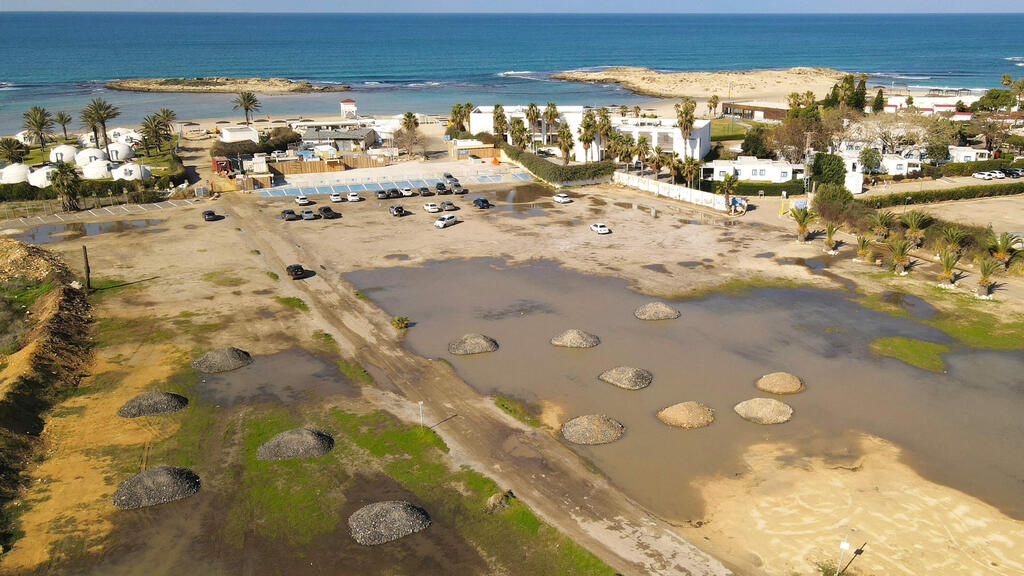

A picture that shows an aerial view of Dor beach, built over the village of Tantura, where an alleged massacre of Arabs took place after the surrender of the village
(Photo: AFP)
Tantura was a coastal Mediterranean village in the northwest of what is now Israel, and the scene of fighting between Jewish and Arab forces in May of 1948.
The film in part focuses on Theodore Katz, who as a master's history student in the 1990s collected testimonies -- from ex-Israeli soldiers and Arab witnesses -- which indicated troops massacred unarmed Palestinians in Tantura outside the context of a battle.
Katz's paper initially earned top marks from the University of Haifa but became a source of national controversy after his findings were picked up by Israeli media in 2000.
Veterans of the Israeli unit that fought in Tantura, the Alexandroni Brigade, sued Katz for defamation and he ultimately issued a retraction, a move he now regrets.
5 View gallery
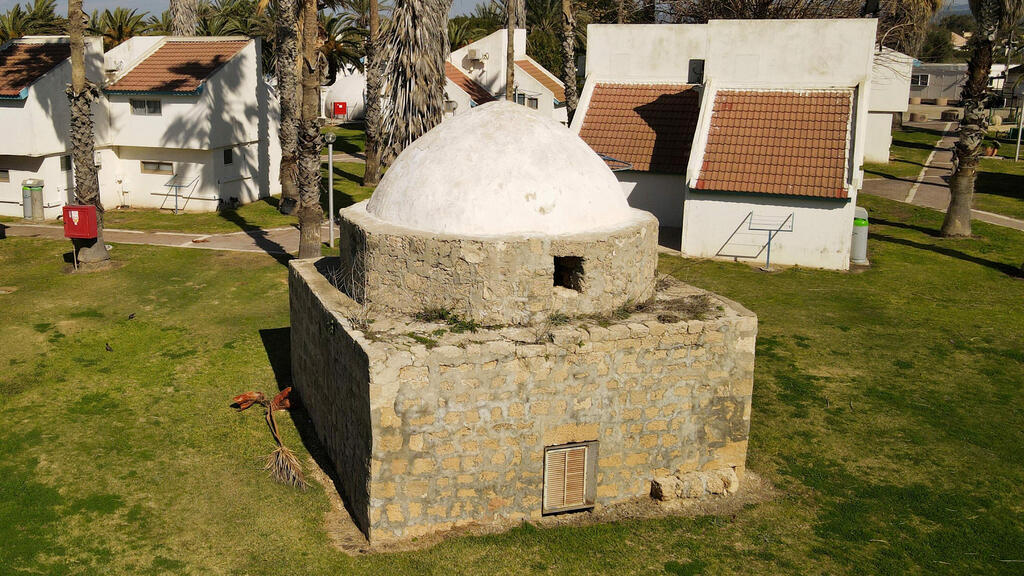

A picture that shows an aerial view of a Muslim Mausoleum at Dor beach, built over the village of Tantura
(Photo: AFP)
Katz is the main character in Schwarz's documentary, which includes extensive testimony from former Alexandroni Brigade soldiers and witnesses, and supports claims of a massacre at Tantura.
Schwarz said that he understands the film could face criticism but said he believed that a new generation of Israelis is more willing to discuss difficult episodes in the nation's history.
"On the one hand, I'm afraid people will go after me but on the other hand, Israel is going through a change," he said. "I am a Zionist. I am for Jews having their own state but I think it is critical for us to understand our history."
5 View gallery
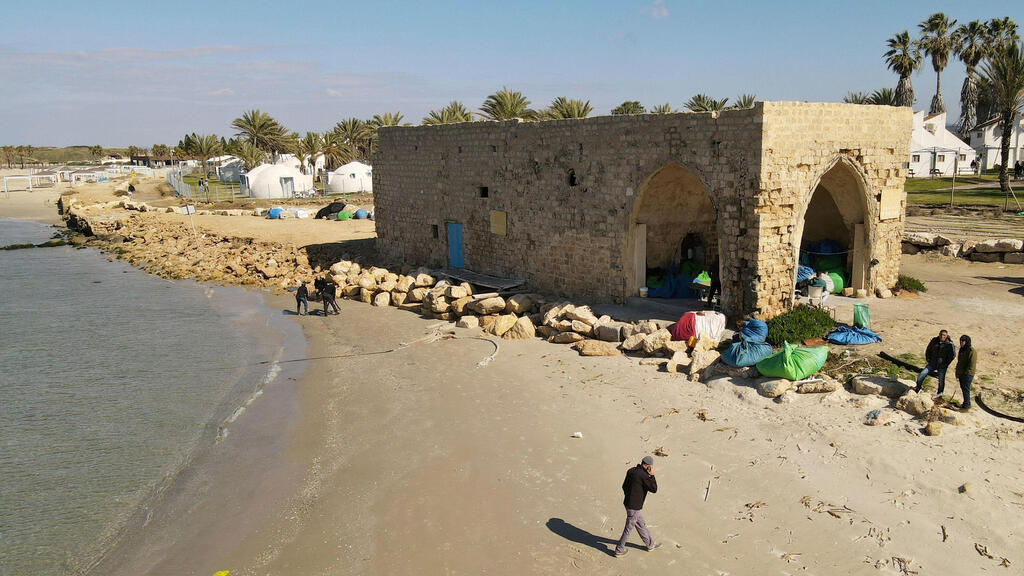

A picture that shows a view of Dor beach, built over the village of Tantura, where an alleged massacre of Arabs took place after the surrender of the village
(Photo: AFP)
Some soldiers interviewed in "Tantura" deny that any Palestinians were killed outside the context of the battle for the town.
Others unequivocally confirm that Israeli forces shot Arabs dead away from the combat zone, but estimates on the numbers potentially killed vary widely.
"It was silenced," one veteran, Yossef Diamant, says in the film. "It was horrifying... I don't want to talk about it, but it happened."
Israel's army declined to comment on the film or the allegations of a massacre, but Schwarz said he received "helpful, straightforward and professional" assistance from the military during his research.
In addition to witness testimony, notably from Palestinians, "Tantura" includes expert analysis on how changes in the ground level before and after the conflict suggest human manipulation of the soil consistent with the digging of a mass grave.
5 View gallery
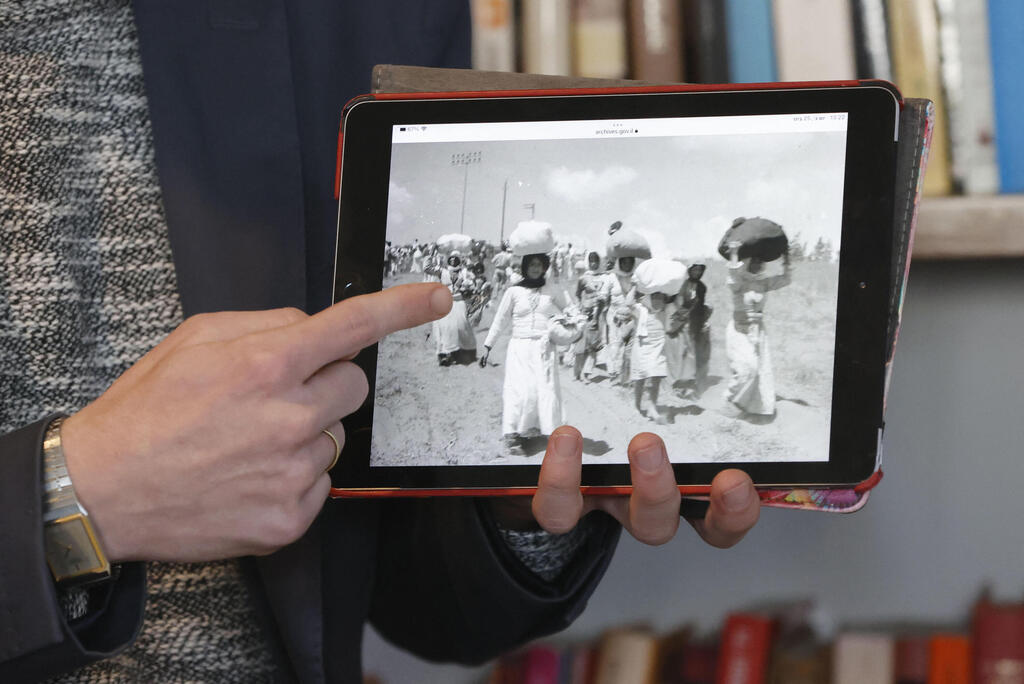

Adam Raz, an Israeli historian who works at Akevot, an organisation that specialises in state archives, displays an old picture of Palestinians
(Photo: AFP)
The film concludes that several Palestinians were likely buried under what is now a parking lot next to the popular Dor beach.
After the film's release, the Palestinian foreign ministry, based in the Israeli-occupied West Bank, called for "an international commission of inquiry" into the "crimes and massacres" allegedly committed by Israeli forces.
In an editorial, Israel's left-wing Haaretz newspaper called for "an investigative task force" to probe the events in Tantura. Schwarz said that he endured "a personal psychological roller coaster" in investigating the events.
"I am this guy who thought I had a grip on our historical reality but I actually grew up on the myth" about the moral purity of the Israeli state, he said.
When it comes to the conflict with the Palestinians, he said, "telling ourselves a story that there wasn't a people here before is not helpful".
"That is the founding myth of the nation and I think we need to get real and mature as a society."
5 View gallery
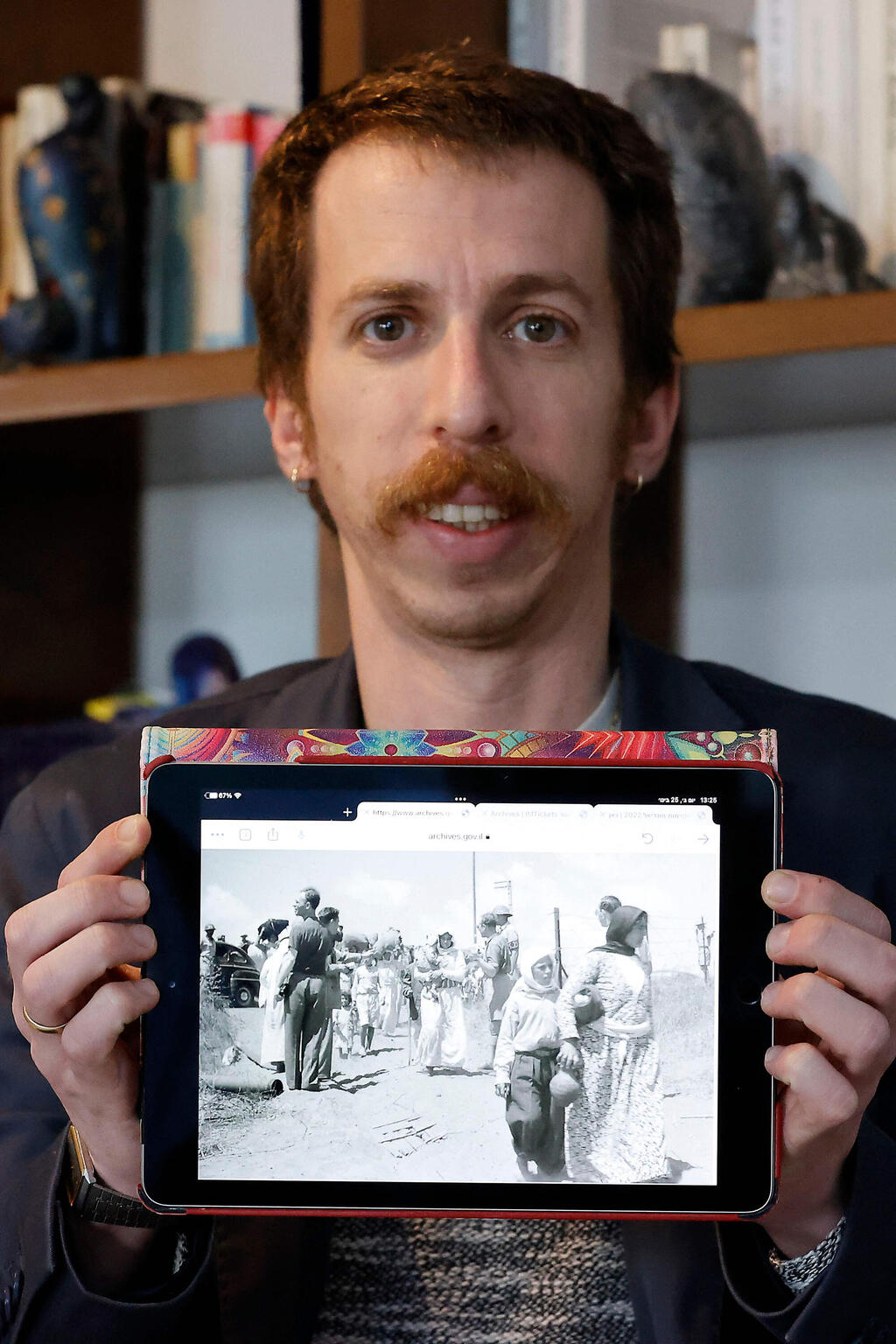

Adam Raz, an Israeli historian who works at Akevot, an organization that specializes in state archives, displays an old picture of Palestinians
(Photo: AFP)
Adam Raz, an Israeli historian who assisted in the film's production, said that resistance to discussing what happened at Tantura was ultimately not in the national interest.
Jews and Palestinians will live alongside each other "now and in 100 years", said Raz, who works at Akevot, an organization that specializes in researching state archives.
"If we want to go forward towards reconciliation, we need to deal with our past."

